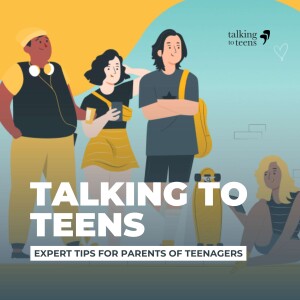
Talking To Teens: Expert Tips for Parenting Teenagers
Kids & Family

Blame is one of humanity’s oldest coping mechanisms. When things go wrong, we’re quick to point a finger at someone and declare that it’s their fault–creating war, political division, and heartbreak as a result. Not to mention that half the time we’re pointing the finger at ourselves, which typically only leads to self-loathing and insecurity.
The truth is, blaming someone or something for our issues isn’t going to make them go away. If we really want to confront our problems, heal our traumas and live better we’ve got to stop blaming and start accepting.
This week, we’re talking to Denis Murphy, author of The Blame Game: How to Recover from the World's Oldest Addiction. Denis is a coach and healer who’s worked with companies, families and individuals all over the world. His practices focus on helping people stop blaming themselves or others for misfortune in their life, and instead learn to harness their mental and physical wellness to create the life they want.
In our interview, we’re talking about why parental expectations can lead us to blame kids when things go wrong. We also discuss how suppressing our negative thoughts can cause mental and even physical pain, and break down the importance of self honesty.
More Episodes
 2023-08-06
2023-08-06
 2023-07-30
2023-07-30
 2023-07-23
2023-07-23
 2023-07-16
2023-07-16
 2023-07-09
2023-07-09
 2023-07-02
2023-07-02
 2023-06-18
2023-06-18
 2023-06-11
2023-06-11
 2023-06-04
2023-06-04
 2023-05-28
2023-05-28
 2023-04-30
2023-04-30
 2023-04-23
2023-04-23
 2023-04-16
2023-04-16
 2023-04-09
2023-04-09
 2023-04-02
2023-04-02
Create your
podcast in
minutes
- Full-featured podcast site
- Unlimited storage and bandwidth
- Comprehensive podcast stats
- Distribute to Apple Podcasts, Spotify, and more
- Make money with your podcast
It is Free
- Privacy Policy
- Cookie Policy
- Terms of Use
- Consent Preferences
- Copyright © 2015-2024 Podbean.com





